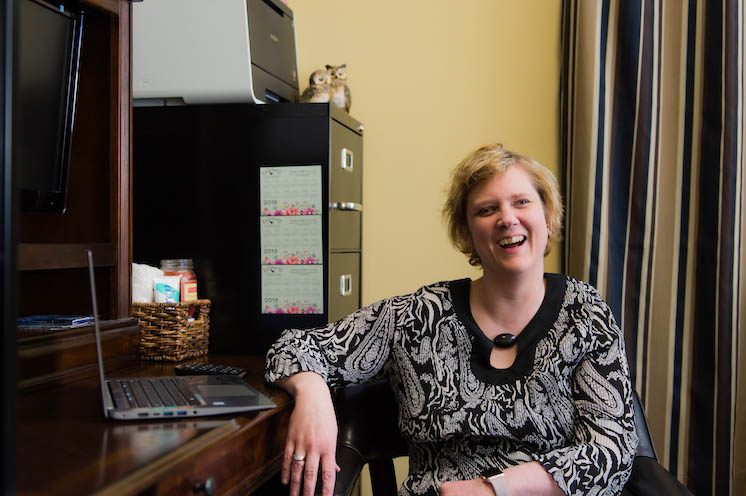After receiving a predicted life expectancy of six months as a pre-teen, one Kennesaw State alumna has transformed her trials into healing by opening her own counseling practice.
At the age of 12, Kimberly Duff was diagnosed with brain cancer and given a prognosis of six months to live. After enduring multiple rounds of chemo and radiation, Duff completed her bout with brain cancer.
Shortly after, however, she became blind at the age of 16. Although many might have given up, Duff propelled forward, graduating from high school a year early and earning her bachelor’s degree from KSU.
“A big part of getting through all of the chemo and radiation was … [my] strong motivation to get back in school every time something happened,” Duff said.
Duff’s persistent deposition led her to obtain a bachelor’s in psychology and a master’s degree in rehabilitation counseling. Along with her degrees, Duff obtained a certification allowing her to open a private practice and another certification allowing her to counsel clients without supervision.
Throughout her working life, Duff said she has had to learn how to use technology while newly blind and how to navigate social climates when coworkers were rude or discriminatory.
“The working world, in general, is not nice and I always thought that since I was very successful in school and I made good grades … the working world would be the same, but it’s really not,” Duff said.
Still, Duff persisted, and now she’s able to help others do the same. Duff currently counsels an average of three to four people a day. She rehabilitates people who are newly blind through the use of psychoeducation, which is the process of educating people about their mental state so that they can better cope with and better understand their mental illnesses and conditions, according to Good Therapy.
Her rehabilitation through psychoeducation motivates her clients to approach situations in new and positive ways by reassuring them that life does not end after the loss of sight.
A typical treatment process for Duff’s clients starts with her receiving background information to identify problems and decide which modality — or therapeutic method — to utilize. After the method is chosen, the healing truly begins.
Duff practices a variety of therapeutic modalities, including art therapy, cognitive behavioral therapy, humanistic therapy, interpersonal therapy, solution-focused brief therapy, online counseling and many more, according to her Psychology Today profile.
“I think what makes me successful is that I don’t stop,” Duff said. “If I get knocked down, I get back up, and if I fail at one thing and if it’s something that I really want to accomplish, I keep trying it over and over again. I think being successful comes from persevering and being persistent — I can’t stop when something goes wrong.”
To learn more about Duff’s work or to schedule an appointment, visit counselingbykimberly.com.



